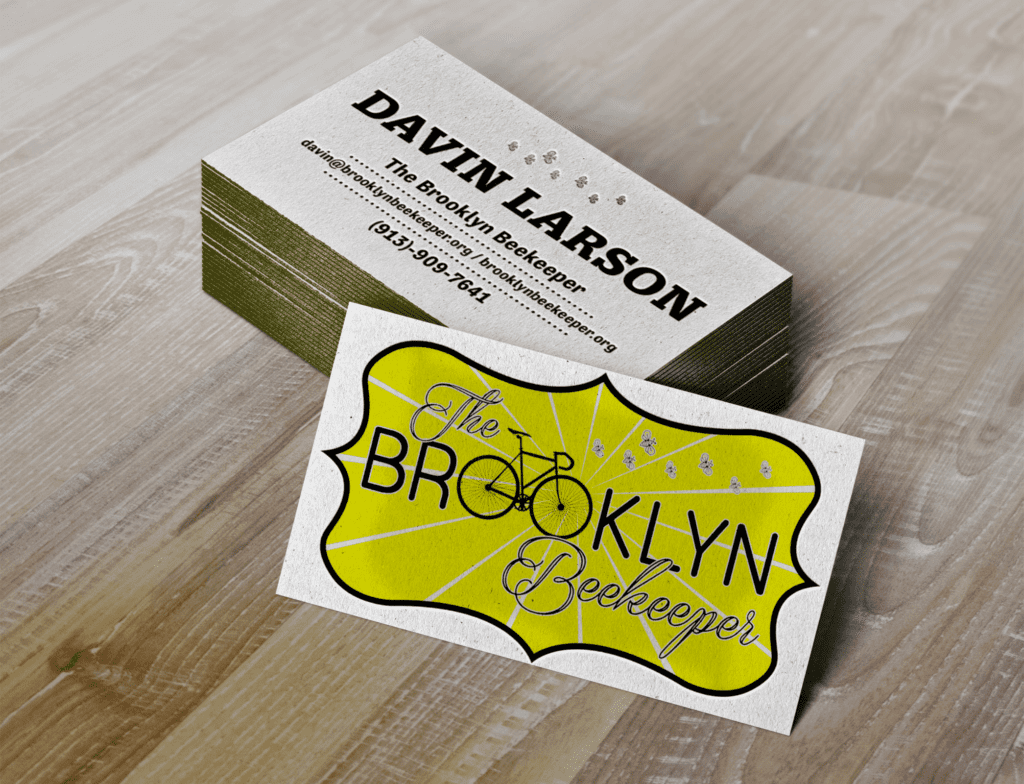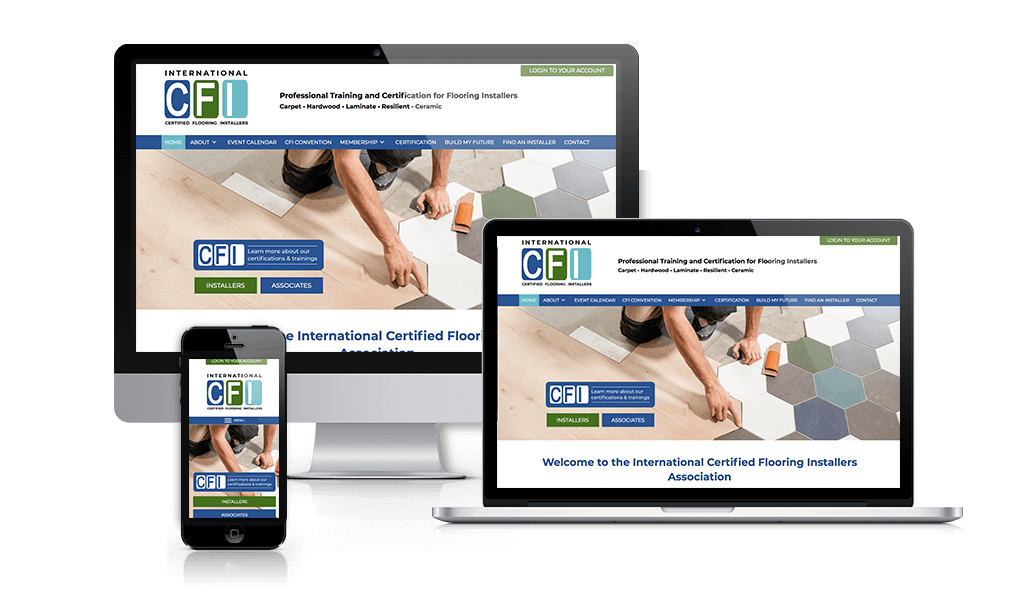
If you have a business, you probably have a business card. I have very nice business cards, which is funny because I work remotely and rarely have the opportunity to give it out and when I do, it’s usually at a conference to a colleague rather than a client.

Often times, I hear people balk at what a website cost and part of the reason is because they think that their website is just their online business card. Simply a place to put their name and contact info online.
And if that was the case, if all you really needed was to put your contact info online, then you wouldn’t need to pay $5,000 for a website.
But ask yourself this, is the person who lands on your website simply trying to get your contact information? Is the Internet just a phone book for them?
The answer is, it’s not.
It’s 2019. Your website is marketing.
Have you ever bought an ad in the Yellow Pages? (I’m showing my age here.) Or purchased a billboard? Bought a radio or TV commercial? How much did it cost?
Did it do more than list your name and phone number? Would you ever consider paying the money it costs for an ad campaign that simply listed your name and phone number?
Of course not.
Don’t treat your website like a business card. It’s not.
More than 80% of people will research a company online before they make contact. That doesn’t mean they will look for a list of phone numbers to call, they are research you or your company.
Things people want to know when they research your company

- If you are any good at what you do.
- What services you offer.
- What your portfolio looks like.
- How long you’ve been in business.
- If you have a skilled team.
- How to contact you.
- If you’re on social media.
- What people are saying about you.
- Where you are located.
- Where you service.
- How your business is unique.
- Why you are better than your competitors.
- If you’re trustworthy.
In short, the website needs to answer all of these queries for the website visitor. Your business card doesn’t answer these questions, because you give your card to someone when you meet them. They visit your website before they contact you.
Do you know how to convey the answers to all of those items in a website?
There are a lot of DIY website builders on the market right now. Pretty much anyone can easily buy a package and drag and drop some information onto it. With just a few hours of work, you can probably build your own website that allows people who visit it to know who you are and what you do.
Let me clue you in on a little secret.
There is value of working with a professional for your website and it’s not about the design. While one of our goals is always to make your website look great, it’s not the #1 goal. Our primary goal is to make your website work. It’s to convince the person who lands on your website that you are the best person for the job, the person they should hire, a company they can trust.
Professionals know how to make websites that convert. We know what people are looking for, how they use websites, and how to get them to take the next step.
If it’s done well, your website can a source of revenue rather than an expense!

What your poorly executed website says about you to customers
Whatever website you have, whether it’s a professional website or a DIY website, it sends a message to any user that lands on it. And you have the power to decide what that messaging is. If you make your own website with the minimal amount of planning and preparation, there are a few messages you’re sending to potential clients.
- That you can’t afford a good website. Which also translates into that you don’t make enough money to hire professionals to create a great online presence for you. Which may make people wonder why you can’t afford a proper website. Is it because you aren’t very good? That you aren’t getting hired? If you think that’s a stretch, let me assure you that it’s not. A professionally made website sends a message to your clients, and it’s that you are a professional too.
- That you cut corners. If you haven’t taken the time to properly plan and strategize for your own business, are you doing the same for your paying customers? You are doing a disservice to yourself and your business by not taking the time and investment in having a professional online presence.
- That you’re inexperienced. If your website looks like you made it yourself, then that also conveys the message that you don’t have much experience. People who are good at what they do hire professionals to take care of important aspects of their business, because they are busy doing the work that they are best at. If you have a lot of time to DIY a website, then it may seem like you don’t have a lot of experience.
Building trust with an audience is an art
One of the most important aspects of your online presence is building trust with your intended audience. If the person who lands on your website doesn’t feel like they can trust you, then they will just move on to the next website. Unless you have zero competition, having a poor website is costing you a lot of business.
Your website should showcase your expertise, build up your authority, and convey your trustworthiness.
Showcase Your Expertise:
What makes you an expert at what you do? How would you convince someone that you’re an expert? You can do this in a lot of ways, but one of my favorites is through a kick-ass portfolio. Any online portfolio of work should include photos or examples of your work. If you’re a custom home builder, then having photos of your homes is a must-have for your website. Do you do remodeling? Before an after photos, please. Are you a writer? Then your site needs to have a portfolio of your work with links to your current online articles. Seeing is believing in most cases.
Build Authority:
Your website needs to feature you as an authority and nothing does this quite as well as testimonials. What are people saying about you? Your website should feature rich testimonials of your actual clients telling about their experiences. However, there are a few caveats about having testimonials, because anyone with sense knows you are selecting the best testimonials for your website and you won’t put bad ones there, obviously.
- They must be real. Don’t get them from your friends or family and don’t write fake ones.
- Provide evidence that your testimonials are real. If you have a page of testimonials and all of them are from some random person who is listed with just initials? Not very convincing. Is there a way you can prove that these are real testimonials from real clients? On our own testimonials page, we include a photo of the person providing the review and a link to the website we built. When you can see a real face associated with the testimonial and the work that goes along with it, that reinforces that those testimonials are true.
Convey Trustworthiness
This is a big deal, because if your customers don’t trust you, they won’t hire you. One of the best ways to showcase your trustworthiness is through an excellent backstory and bio. Why do you do what you do? How did you get into that line of work? What makes you passionate about it? What have you learned from your experience.
Yes, listing your credentials helps, but a list of your college credits isn’t as compelling as the human story behind. Be human. Showcase your humanity. Include a photo of yourself. People want to know who you are. Use all your tools to show them you can be trusted.
Your business card is important, but if you put more time and effort into your business card than your website, then you probably aren’t reaping the benefits that a professional website can bring you. Stop fretting about the expense and focus on the rewards it will bring.
Amy Masson
Amy is the co-owner, developer, and website strategist for Sumy Designs. She's been making websites with WordPress since 2006 and is passionate about making sure websites are as functional as they are beautiful.
